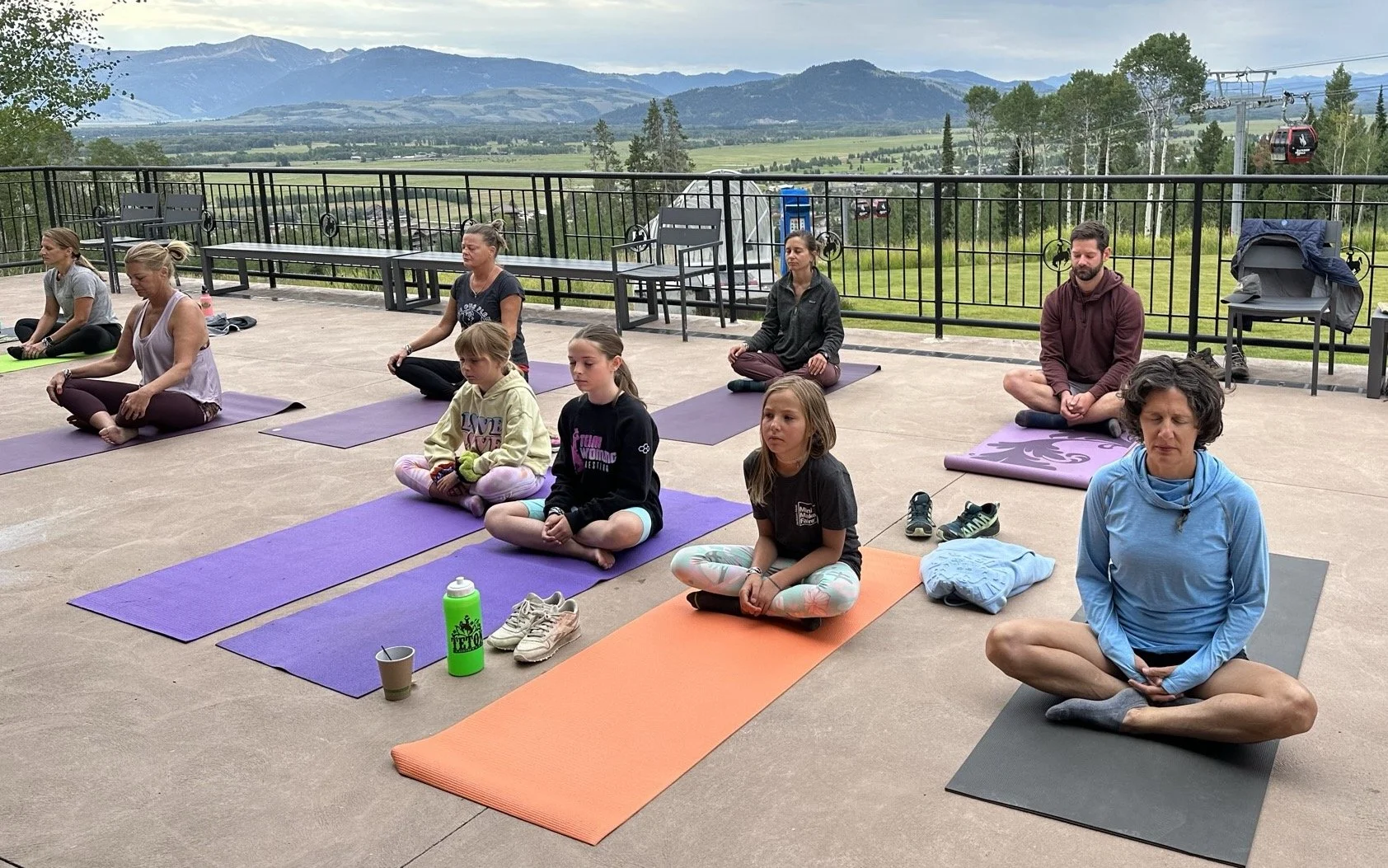Mindfulness as a Long-Game Strategy
Just a few weeks ago, Becoming Jackson Whole’s chief science advisor, Dr. Amishi Jha, and several colleagues released a breakthrough meta-analysis of mindfulness research, analyzing the long-term impact of mindfulness practice on mind-wandering, or experiencing frequent, off-task thoughts.
“Does practicing mindfulness actually change how much our minds wander?” they asked. “And, do the benefits stick?”
The answer, friends, is, “Yes.”
Read More
BJW Goes to Wales
Becoming Jackson Whole, our hometown venture to connect and support our community through mindfulness practice, gained international recognition this month when it was featured by Kelly Boys of the Mindful Cities Initiative in a presentation to Mindfulness Wales.
“BJW is an incredible flagship Mindful City because of the cross-sector integration and the Summits that are held,” Kelly said. “It's rare to see a city come together as a community around the themes of well-being and mindfulness, showcasing stories of how they are engaging with the practice and sharing expertise and learnings.”
Read More
We're All Bananas
One of the most valuable benefits of mindfulness—equanimity, or calm on the seas of living—is also a skill we have to practice. It’s the ability to stay clear-eyed and centered when things change, for good or otherwise, while accepting what is, moment to moment.
Naturally, the trickier end of this spectrum is accepting things that threaten us: bad news, disappointment, loss, pain in our bodies and in those we love. “Some things just hurt,” says acclaimed meditation teacher Sharon Salzberg. We can't avoid pain, but we can diffuse our suffering by mindfully managing our reaction to it.
Read More
Minding Everyday "Micro-Endings"
As humans, we’re really good at looking ahead, anticipating the next thing, especially what lies literally in front of us. In fact, our modern bodies are conditioned to this forward momentum, with our shoulders and heads bent toward our screens. Metaphorically, too, we often punish ourselves for the very notion of stepping back, as though moving any direction but on is a small failure.
But attention to the “micro-endings” we experience daily, via transition, holds huge benefit, writes Shinzen Young, a meditation teacher and neuroscience collaborator with Harvard Medical School, Carnegie Mellon University, and the University of Vermont.
Read More
Expanding Our Community Practice
At the close of our 2023 Summit: Giving Rise to a Mindful Community, dozens of attendees approached us and asked: Where can we practice? When are we meeting again?
There’s just something about coming together, seeing and sensing each other in person, that truly energizes and motivates a community. In fact, research suggests that when we practice mindfulness meditation as a group, it generates an actual sensation of warmth, calmness, or tranquility.
Specifically, group practice helps us:
develop a sense of belonging and connection;
support and motivate each other in our successes and continued practice; and
gain practical tips, perspective, and reassurance that struggle (or, suffering) is universal.
In short, we see that we are not alone.
Read More
What to Do With Anger (and Other Big Emotions)
We received an email—a plea, really—from a treasured frontline professional and avid reader of our content, asking simply, “What can mindfulness do about anger?” This reader, “Jane,” said she appreciated the positive tone of the daily emails, but found reaching for positive emotions in the face of real anger too simplistic.
What should we do, she wondered, when the wounds are too deep, the trust too lacking, to find a silver lining? She was also deeply aware that her inability to move out of her anger made her feel worse and heightened her stress about the whole situation.
Read More
The Benefits of Forest-Bathing
The best part about forest-bathing is that, like mindfulness practice (and in fact, a form of it), anyone can do it, and you don’t have to be steeped in the science to benefit.
It’s not a practice to get somewhere specific or that requires special equipment, muscles, or money. It’s just time to take in the forest with all five senses (if parts are edible!). Wander without aim. Just notice what you hear, smell, or touch.
Read More

